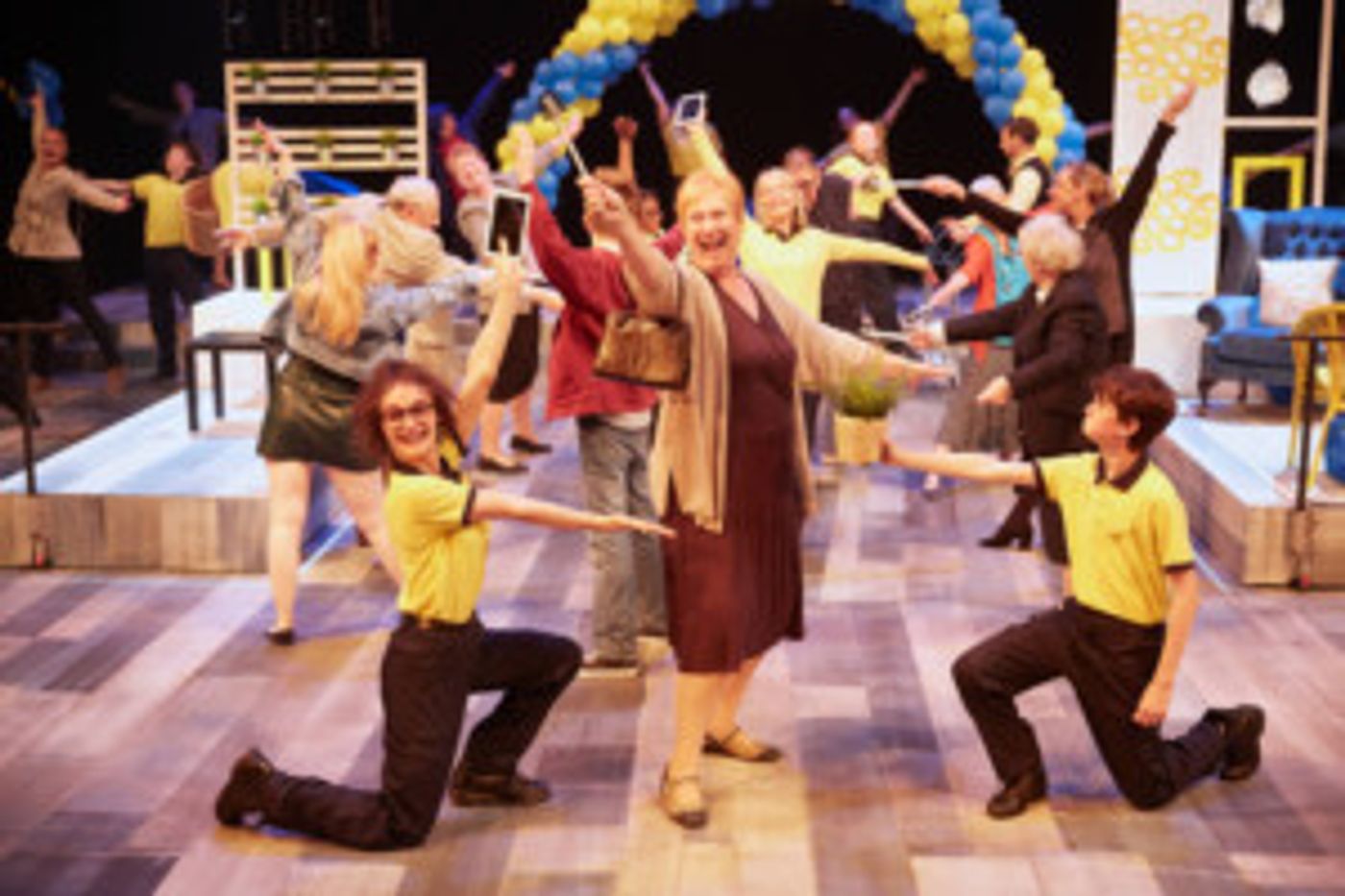Review: SONGS FROM THE SEVEN HILLS, Crucible, Sheffield

![]() You can always rely on the annual Sheffield People's Theatre show to bring something spectacular, and Songs from the Seven Hills is no exception.
You can always rely on the annual Sheffield People's Theatre show to bring something spectacular, and Songs from the Seven Hills is no exception.
This time, the production (written by John Hollingworth with music and lyrics by Scott Gilmour and Claire McKenzie) is a full-on musical - although interspersed with lots of talky bits! It's full of humour and heart, a real crowd-pleaser, but also deals with some complex themes in a way that makes them very accessible and relatable.
Among the diverse 60-strong amateur cast, there are a few core characters we follow more closely, including a transgender teen coming to terms with how to grow into her true identity; a vicar in a troubled marriage to the local deputy mayor (who is the villain of the show and written as perhaps too much of a pantomime baddy); a group of Syrian refugees fleeing war and hoping to settle in Sheffield; a grieving widow struggling to come to terms with her loss; her late husband, whose ghost acts as narrator, and their daughter, trying to keep a community centre alive when it is faced with demolition.
All of the stories intersect, and the cross-cutting narratives allow the supporting characters to develop strong personalities as well.
The play's central themes are home and sanctuary and these are played out across storylines and locations, from the literal (refugees seeking welcome in a church; a woman leaving her house to escape an abusive relationship) to the more metaphorical (transgender teen Georgie's solo song about her body being her home, and wanting that home to reflect the person who lives in it, is one of the most moving and accessible ways I've seen the experience of being trans articulated in fiction).
The scenes take us from families drinking together in comfortable living rooms to refugees bartering with crooks to secure space in the back of lorries; from the shiny optimism of an about-to-open Scandinavian furniture store ('Skandea') to a threatened community centre run from an old working men's club in Shiregreen (a nod, no doubt, to the home of The Full Monty). Scene changes are swiftly executed, in part thanks to some clever use of movable rostra.
Generally, the interlocking storylines work well. However, whilst the Skandea strand brings with it a lot of laughs and recognition (Sheffield's IKEA store opened in 2017 to much fanfare), this storyline mostly fizzles out during the second act. Although the shop setting connects with the wider themes of the play about the nature of home, more could have been done with this part of the story to make it feel like an essential component, plot wise.
I also wasn't entirely convinced of the narrative device of using a 'blood moon' and a solar eclipse to bookend narrative developments. I appreciate the ambition at work in implementing so many different concepts, though.
The songs are generally catchy with lots of refrains recurring in different contexts. Whilst not every performer is necessarily a brilliant singer, they all acquit themselves well in terms of energy and enthusiasm, and the group ensemble numbers are spectacular.
Very occasionally, some of these solo lines from minor characters were too quiet to be audible - I'm not sure whether there were problems with some of the microphones, but hopefully this could be addressed for later performances in the run.
A little like last year's breakout Sheffield Theatres hit Everybody's Talking About Jamie (and, indeed, like many musicals), you could argue that the resolutions are too easily won in this show; that the society portrayed is too utopian.
However, in the political climate in which we live, this is probably what is needed. The message here is that the good in people is stronger than the bad; that hope can triumph over adversity; that everyone deserves home and that - just maybe - they can find it.
Songs from the Seven Hills is at the Crucible Theatre, Sheffield until July 21.
Photo by Mark Douet
Reader Reviews
Videos

